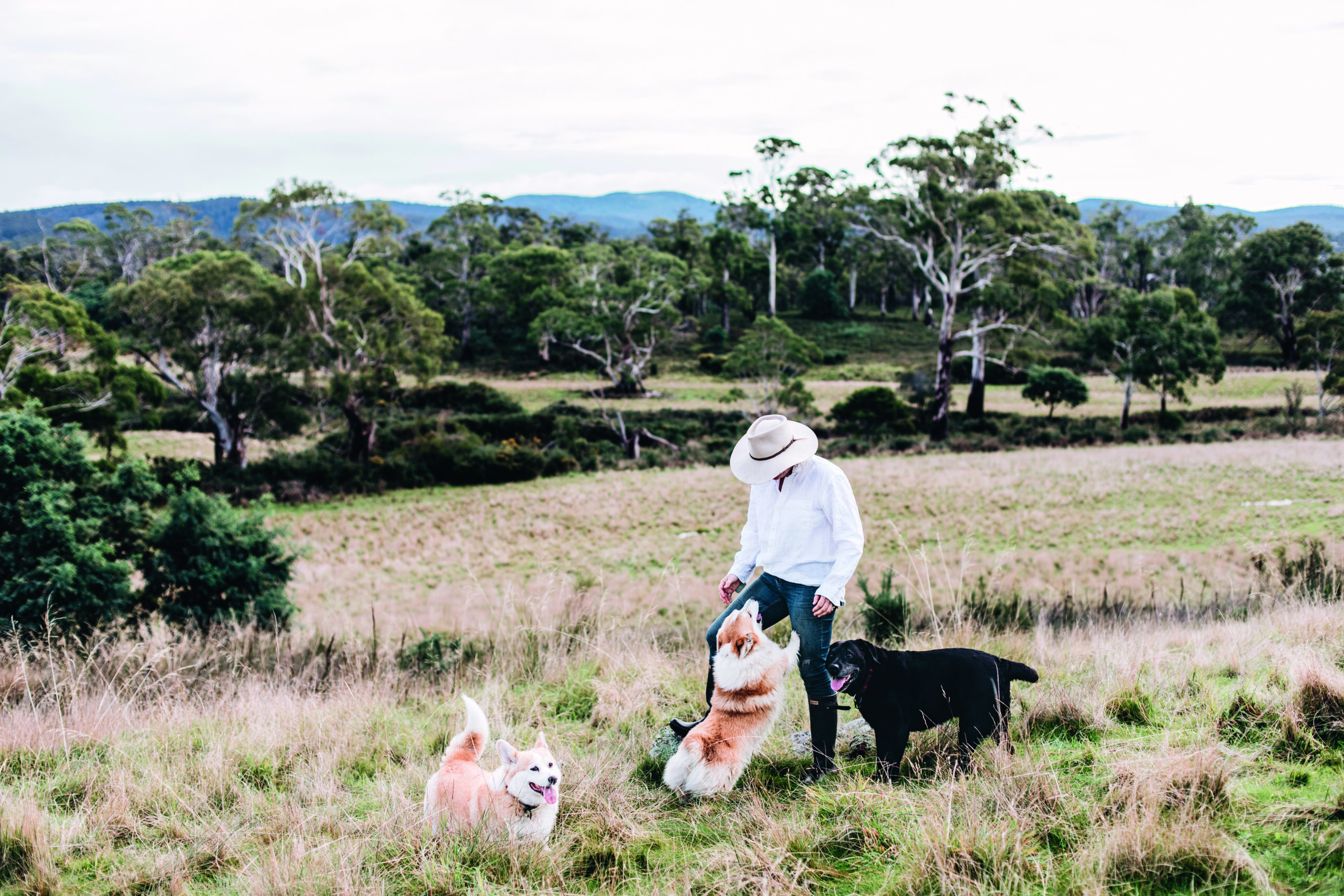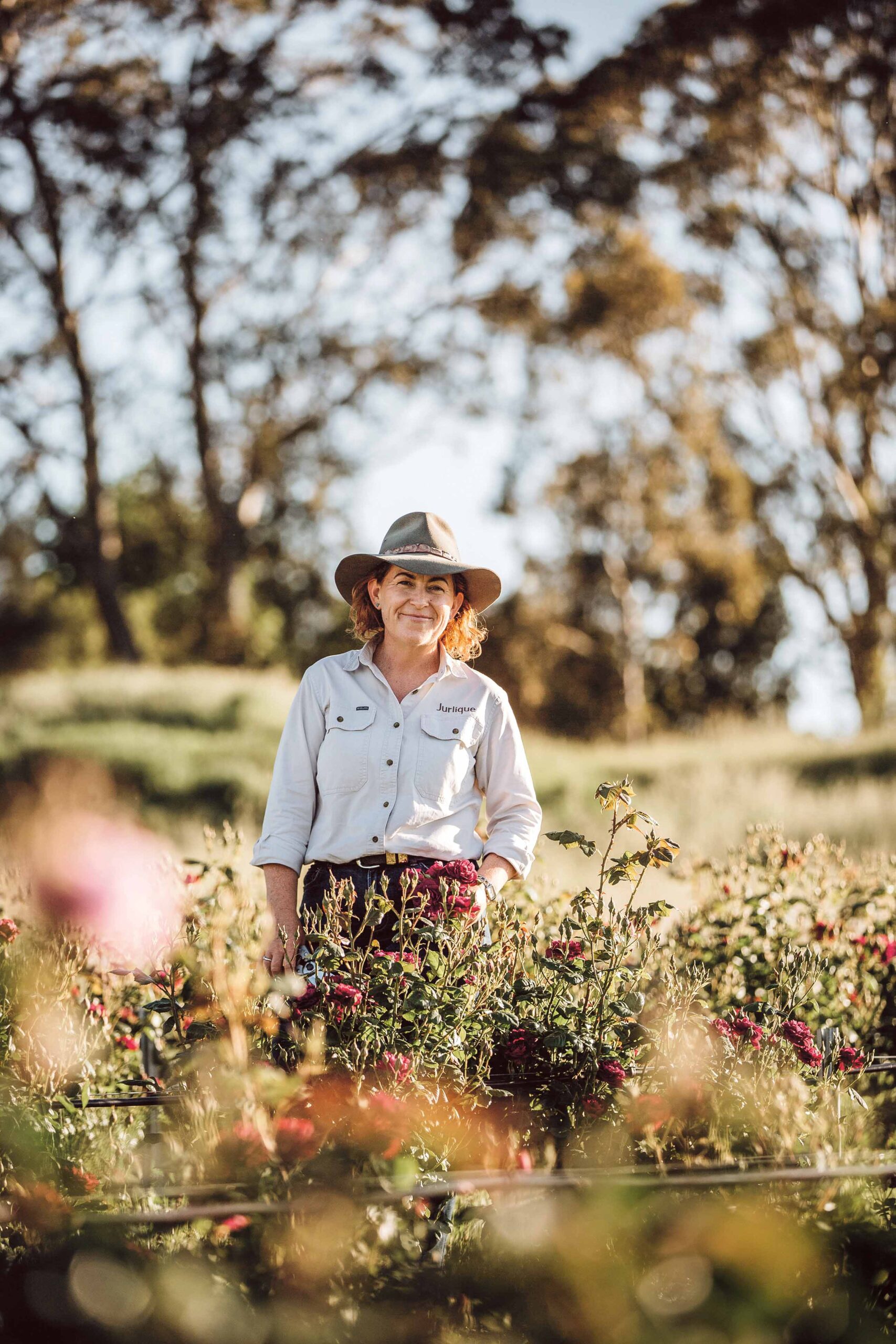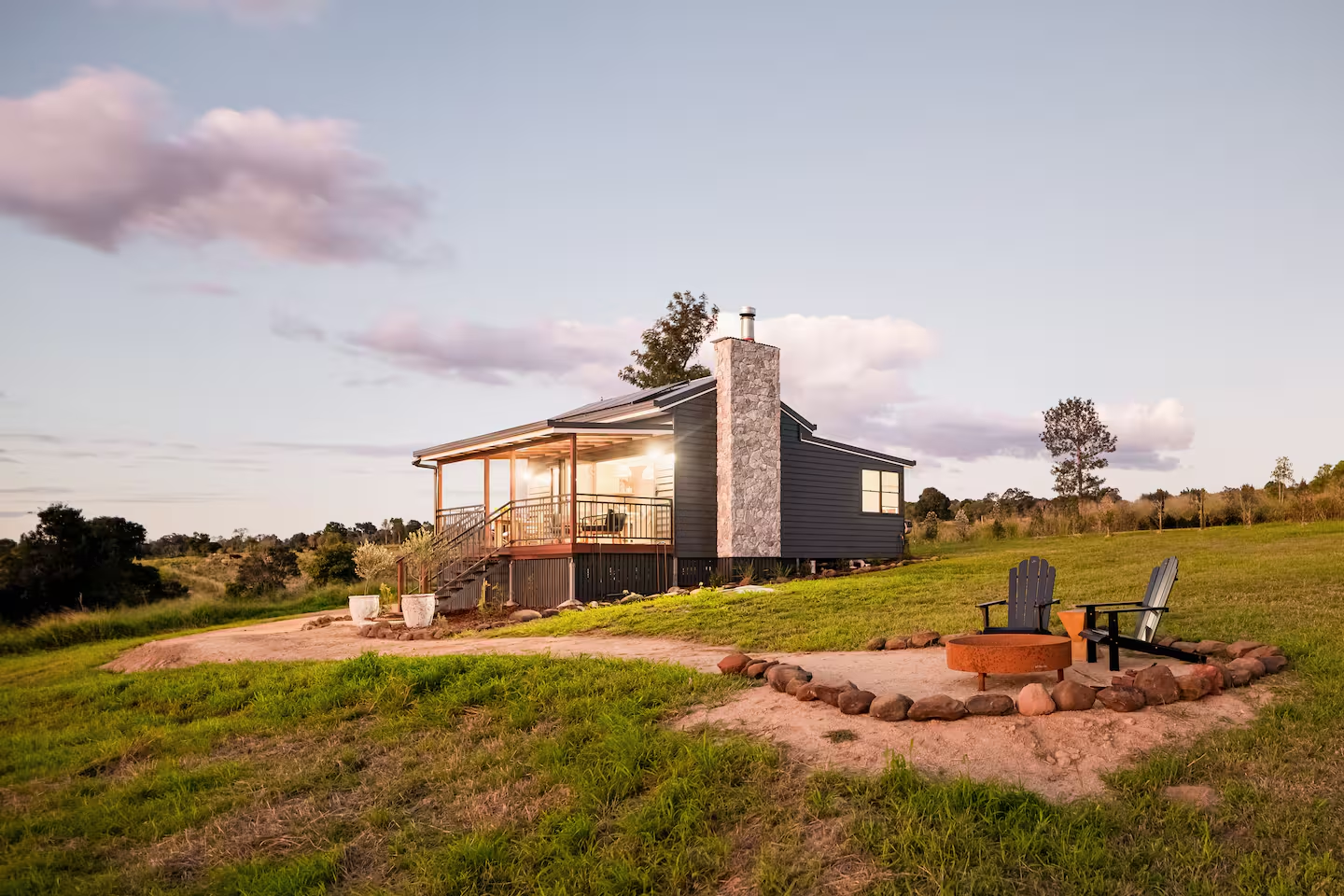PHOTOGRAPHY ABBIE MELLÉ
As summer fades into autumn, indoor pursuits beckon.
Sign up to our mailing list for the best stories delivered to your inbox.
The writer faces beginnings, ends and bittersweet memories as her son sets off for university.
PHOTOGRAPHY ABBIE MELLÉ
Every year I think it’s a trick of the light when the first glint of gold appears in the line of silver birches that stretch below the house down to the creek. February is a blessing in Tasmania. Summer, having taken so long to arrive, feels reluctant to move on. It’s quiet on the farm; usually we are hoping for decent rain, but this year once again the dams are full and the seedbank, after another wet summer, will be huge.
In the quiet of the last days of summer the tomatoes are ripening (yes, tomatoes in February, March and even April down here), the walnuts are growing fat, the apples are swelling; the two giant mulberry trees in the garden are ragged, but still the purple fruit falls. Autumn will be full of crutching ewes, putting the rams out and gearing up for winter. Garden beds will need to be mulched and roses deadheaded but now there’s a pause, a moment to take in the old year and get ready for new.
I always feel the farm year starts with autumn and this last month of summer is the winding down. This year the time is taken up with preparations for the departure of our youngest to his first year at university. In truth I don’t have to do much: he’s organised flights, his passport (he’s off to study Ag Science in New Zealand), what courses he’ll take and what he needs to pack. But I’m there in the background, cooking favourite dinners, enjoying his presence, trying not to prematurely mourn his absence. My last job will be to write him a card that I can slip into his bag. I’ll come into my study, turn the light on and close the door and then I’ll write down the ways I’m proud of him and all my hopes for a fulfilling year ahead. I’ve done it at the end of summer ever since he first went to boarding school.

It’s easy to miss, the season’s change; that is, I can be deceived by the warm water and blue-sky days. I can believe it will be like this always; that summer will just linger. This blindness is a habit in me. I remember when my children were small, the sense of the hours dragging through the mundanity, and then the sudden astonishment as they grew. The sitting up, the crawling and walking. At each moment I found it impossible to imagine them into the next stage. How could the sounds they made morph and stretch into a sharing of language, an extension of themselves. The shock of each stage felt astonishing. It still does.
The silver birches in front of the house are like a bellwether, a canary in the mine. In winter they’re the first to push out the faintest fuzz of green when every other tree is bare. Likewise, as summer draws to a close, they’re the first to turn yellow. In a few weeks they’ll be glowing gold.
The colour is like a gong. It takes me straight back to the summer I spent in the Alaskan wilderness 25 years ago. It was a revelation: I was forced into my body. I learned my limitations; learned I had to tune in to the weather, to heed a shift in temperature, the change in wind, the contours of the world we were walking on. Three months in, I’d started to feel a level of comfort. The foreign world I’d floundered in became familiar, but then I looked at my hands and could hardly see them.

It was darkness, actual falling darkness that caused my hands to disappear. We had been so long in the light, had accepted the midnight sun that sat on the horizon and then rose again, that I’d forgotten the dark. In hours, or so it seemed, the tundra turned from every sort of green to a deepening red and then it started to glow yellow as the leaves of the miniature spruce and beech let go of the year that had been. We had to cross that turning tundra to get from the mountains, where we had been climbing, to Wonder Lake where we would meet the bus to ride back to the headquarters of Denali National Park and Preserve. We walked hard, plucking the last blueberries from the bushes, on alert for Grizzly bears doing the same.
I think about that walk every year as the light tilts and shortens. I think about how I had grown used to perpetual daylight and how shocking the change to darkness seemed, how swiftly each day shortened. And I think about how I adjusted and take heart that the quiet of winter has its own treasures.
C’s departure is familiar. He’s been doing it every year since he was 10: at first for a week at a time, then for a term and for the last two years we’ve waved goodbye as he drove north to work in the heat and red dust. I’m used to the goodbye, ready for it. This year he’ll leave from the airport and I won’t have to worry that his old ute is going to break down in the middle of nowhere or that he’ll fall asleep on the long stretches of straight road. There are other things I’ll torture myself imagining, but I find comfort in imagining all the people he’ll meet, the places he’ll see, that widening of his world we all want our children to experience.
After he’s gone I’ll strip the bed, neaten the bookshelves, haul the vacuum cleaner up the stairs and give his room a good going over. I’ll empty the dirty clothes basket and wash it all and then make his room up ready for his return. I’ll pick up the cricket and footy balls and pile them back in the box at the end of his bed and, as I do, I’ll quietly let him go all over again.
Listen to Maggie’s podcast, The Farm Diaries, on Apple Podcasts, Spotify and all major podcast platforms. You can also follow Maggie on Instagram.

Raised on a dairy farm near Hahndorf, SA, farm manager Cherie Hutchinson has a deep love for the land she works on.

If you like the idea of a private plunge pool, mountain views and a glass of local verdelho, it’s time to start planning your Firebreak Farm escape.